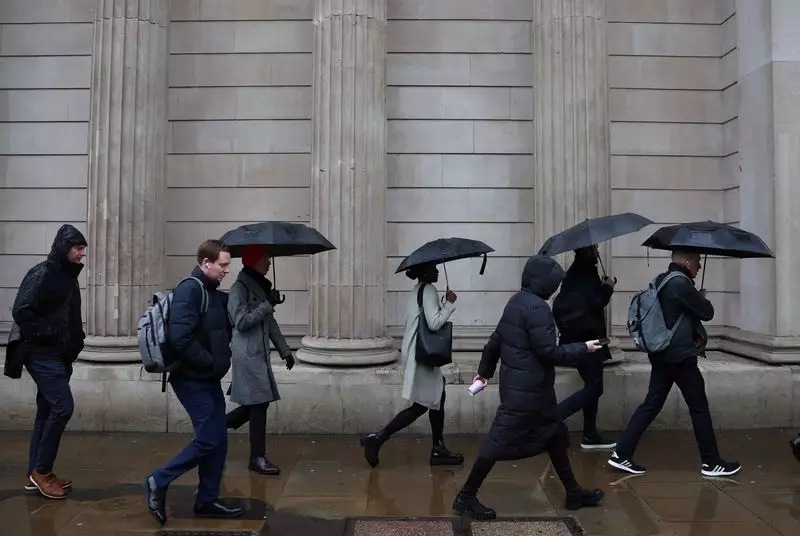The latest data from Britain’s labor market paints a sobering picture as the economy appears to lose traction. A recent survey from the Recruitment and Employment Confederation (REC) in partnership with KPMG has revealed notable declines in both wage growth and employment activity, signaling a potential shift in economic dynamics. The starting pay index for permanent positions fell to 52.5 in October, down from 52.8 the previous month, marking the lowest level since early 2021—an era characterized by pandemic-driven economic disruption.
These findings are concerning, especially when considering the context of impending fiscal changes. The REC’s Permanent Placements Index, which gauges the number of people hired into permanent roles, dropped significantly to 44.1 from 44.9, indicating a steep contraction in hiring activity. As the economic uncertainty escalates, particularly leading up to the new Labour government’s budget, firms are evidently hesitant to onboard new talent.
In light of this stagnation, the Bank of England (BoE) has been closely monitoring wage growth trends to assess inflationary pressures. Following the latest report, the BoE made a modest decision to reduce interest rates to 4.75%, down from 5%. According to REC’s chief executive Neil Carberry, the evidence presented in the wage growth data indicates little urgency for the BoE to alter its stance on interest rates significantly. The cautious approach suggests that while borrowing costs have been lowered, the trajectory of future reductions is likely to be gradual, leaving businesses in a state of cautious optimism.
Furthermore, the survey results indicated a concerning trend: vacancies declined for the twelfth consecutive month while candidate availability rose. This shift suggests an imbalance in the labor market, where demand for workers is waning just as the supply increases. The largest spike in temporary staff availability in nearly four years only amplifies concerns regarding job security and hiring intentions among businesses.
The recent budget introduced significant tax increases, amounting to 40 billion pounds, with much of the burden falling on businesses through heightened social security contributions and a hike in the minimum wage. Finance Minister Rachel Reeves’ initiatives could further complicate the hiring landscape. KPMG’s group chief executive, Jon Holt, expressed apprehension that these financial changes might encourage companies to adopt a more conservative approach to recruitment. The expectation is that with added costs, many firms will be forced to reconsider their staffing needs, potentially stalling any recovery in the labor market.
With a broader economic climate characterized by rising costs and tightening budgets, the implications for wage growth become increasingly pessimistic. The interaction of tax policies and labor market conditions creates an environment of uncertainty, leading businesses to rethink their strategies for growth and investment in human capital.
Overall, the current state of Britain’s labor market showcases an undeniable cooling trend with intricate ties to fiscal policy and economic sentiment. As firms grapple with the implications of the latest budget, the future of hiring and wage growth remains precarious. Moving forward, stakeholders will need to navigate these changing tides with vigilance, adapting to new economic realities while fostering a resilient workforce capable of withstanding ongoing challenges.

